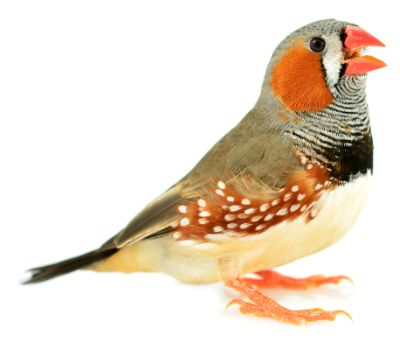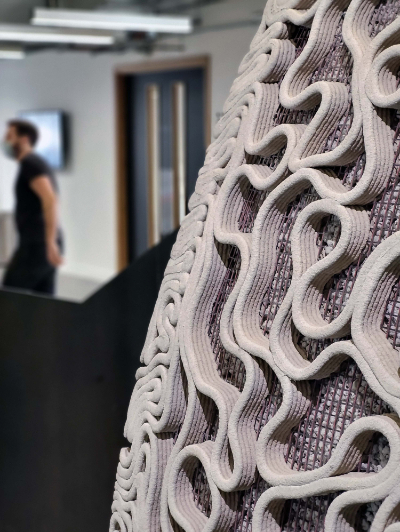Collaborations by UC San Diego Researchers Win Cluster of National Awards
New crop of research awardees receives national recognition with innovative collaborations
UC San Diego’s standing as a national leader in pioneering brain and microbial research received another boost recently with three national awards for efforts that could change the way humans and machines retain memories, create speech and enlist the microbiome to promote healing.
The U.S. National Science Foundation announced $30 million in research awards to support new interdisciplinary, fundamental research projects for the Emerging Frontiers in Research and Innovation (EFRI) program — 20 percent of the funding was awarded to UC San Diego recipients.
“When interdisciplinary collaboration is a key criterion in funding decisions, we are never surprised that UC San Diego researchers are well-received. This campus is known for supporting efforts that break silos in the service of a greater public good,” said Vice Chancellor for Research Corinne Peek-Asa. “The projects selected are just a few examples, and a small fraction of the many interdisciplinary collaborations going on right now. They illustrate the great potential for future research impact.”
Three of the 15 EFRI awardees are UC San Diego faculty working on research projects that involve engineering brain-inspired systems or engineered living systems:
- Principles of Sleep-Dependent Memory Consolidation for Adaptive and Continual Learning in Artificial Intelligence, led by Maksim Bazhenov, a professor of medicine at UC San Diego School of Medicine
- Neurally Inspired, Resilient Closed-Loop Feedback Control of Learned Motor Dynamics, led by Vikash Gilja, a professor of electrical and computer engineering at Jacobs School of Engineering
- Developing Probiotic Interventions to Reduce the Emergence and Persistence of Pathogens in Built Environments, led by Jack Gilbert, a professor of pediatrics in the School of Medicine and Scripps Institution of Oceanography.
Each four-year award of $2 million integrates research with ethical, legal, and social considerations.
 Researchers explore sleeps true power over memory.
Researchers explore sleeps true power over memory.
The Power of Sleep
Lead researcher Bazhenov will continue his research on how we use sleep to synthesize information. His work suggests that the restorative value of sleep is not just applicable to humans. In a previous study co-authored with Timothy Gentner, a professor of psychology and neurobiology, Bazhenov explored the idea that a sleep-like state may be lacking in current artificial intelligence-based computer systems that power self-driving cars and recognize images.
Even though the systems perform in some ways far exceeding humans, artificial intelligence currently lacks the ability to learn continuously and forget old knowledge when new information is acquired.
Bazhenov’s research could lead to the development of new stimulation techniques during sleep for humans and machines to improve memory and learning. This may be particularly important in older adults or persons suffering from learning disabilities.
Bazhenov’s collaborators include Giri Krishnan (UC San Diego School of Medicine) and colleagues at the School of Life Sciences at Arizona State University Brian Smith, Hong Lei, and Theodore Pavlic (also Schools of Computing and Augmented Intelligence; Sustainability; and Complex Adaptive Systems).
Thinking Aloud
Gilja’s project addresses a critical challenge in the emerging field of brain-machine interfaces (BMI).
 Zebra finch
Zebra finch
Gilja and team posit that BMI technology holds great potential for restoring movement and communication abilities lost to injury or disease.
This expands on decades of work by Gilja and others tp decode arm movement intent and more recent work by Gilja and Timothy Gentner (psychology and neurobiology) to re-create a bird’s song based only on reading its brain activity.
The songbird research, a collaborative effort between engineers and neuroscientists at UC San Diego, demonstrated the ablity to reproduce the songbird’s complex vocalizations, including pitch, volume and timbre. That success lays the foundation for building vocal prostheses that might someday enable impaired individuals to communicate naturally with speech using their thoughts.
Gilja’s collaborators include UC San Diego colleagues Gentner (psychology and neurobiology) and Gal Mishne (neuroscience and electrical engineering, Halıcıoğlu Data Science Institute); and University of Michigan colleagues Cynthia Chestek (biomedical engineering) and Parag Patil (neurosurgery).
 Prototype of sculpture created with microbial material that filters bacterial pollutants from the air. Photo courtesy of Richard Beckett.
Prototype of sculpture created with microbial material that filters bacterial pollutants from the air. Photo courtesy of Richard Beckett.
Good Bacteria
Gilbert and team are tackling the unrelenting array of infections originating within built environments. We all carry infectious agents (inside and out), sometimes acquired through contact with contaminated surfaces, often ironically in health care environments.
Gilbert’s team hopes to better understand and develop a probiotic, Bacillus that can be integrated into buillding products to prevent the survival and spread of multi-drug resistant organisms, also known as superbugs, in such settings and elsewhere.
More intriguing: What if this microbial cleaning system could be used to create living surfaces, reducing the need to continually re-apply this biological control agent?
Gilbert’s UC San Diego collaborators include Shaochen Chen (nanoengineering); Karsten Zengler (pediatrics and bioengineering); and Rebecca Fielding-Miller (public health and gender equity). The team is also working with colleagues in the United Kingdom.
The researchers have been exploring creative uses for bacteria internally and externally for years.
"Our university's research enterprise is strong because of the architecture of research support surrounding them."
Corinne Peek-Asa, Vice Chancellor for Research
With Zengler and Fielding-Miller, Gilbert was also the lead on a recent award from the National Institutes of Health for $14.55 million to launch the Microbiome and Metagenomics Center at UC San Diego, part of a national health consortium.
The center will analyze the stool microbiomes of more than 10,000 people to study how it may predict individualized responses to diet.
Team efforts
Peek-Asa noted that UC San Diego’s internal support system, which includes research development, contracts and grants, compliance and integrity, are unsung champions in making possible the university’s ever-expanding and complex billion-dollar research enterprise.
"Research is a team effort from the lab maintenance workers to the analysts who ensure that our proposals for funding are accurate and fully compliant," Peek-Asa said. "We certainly celebrate the researchers with the vision and knowledge to explore new realms and pioneer new processes, but their work and the work of our university's research enterprise is strong because of the architecture of research support surrounding them."
Publication: Oscar C González, et al., Can sleep protect memories from catastrophic forgetting?, eLife Sciences Publications Ltd. (2022). DOI: 10.7554/eLife.51005
Original Story Source: UC San Diego

 Alerts Sign-up
Alerts Sign-up